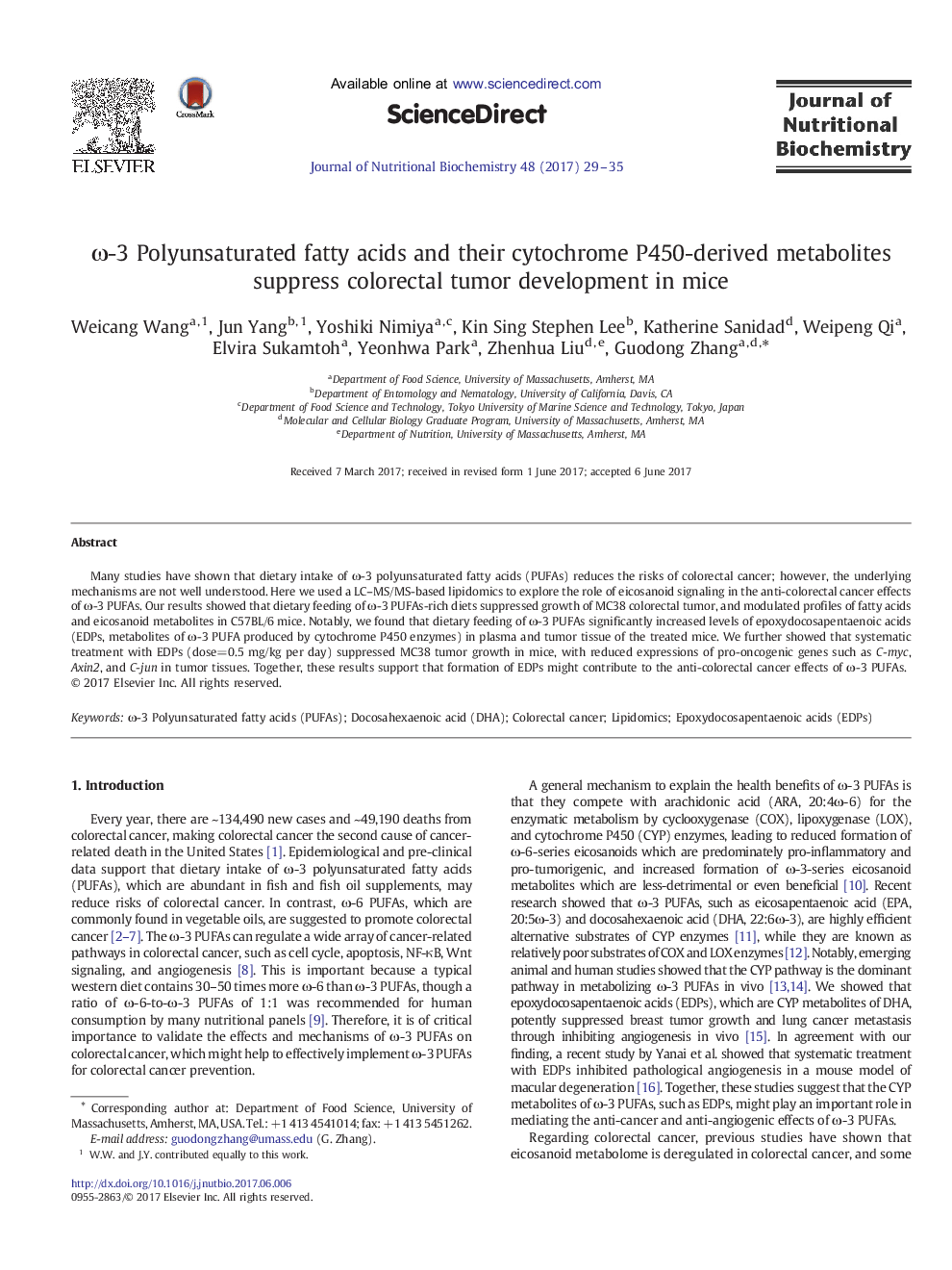| Article ID | Journal | Published Year | Pages | File Type |
|---|---|---|---|---|
| 5512781 | The Journal of Nutritional Biochemistry | 2017 | 7 Pages |
Abstract
Many studies have shown that dietary intake of Ï-3 polyunsaturated fatty acids (PUFAs) reduces the risks of colorectal cancer; however, the underlying mechanisms are not well understood. Here we used a LC-MS/MS-based lipidomics to explore the role of eicosanoid signaling in the anti-colorectal cancer effects of Ï-3 PUFAs. Our results showed that dietary feeding of Ï-3 PUFAs-rich diets suppressed growth of MC38 colorectal tumor, and modulated profiles of fatty acids and eicosanoid metabolites in C57BL/6 mice. Notably, we found that dietary feeding of Ï-3 PUFAs significantly increased levels of epoxydocosapentaenoic acids (EDPs, metabolites of Ï-3 PUFA produced by cytochrome P450 enzymes) in plasma and tumor tissue of the treated mice. We further showed that systematic treatment with EDPs (dose=0.5 mg/kg per day) suppressed MC38 tumor growth in mice, with reduced expressions of pro-oncogenic genes such as C-myc, Axin2, and C-jun in tumor tissues. Together, these results support that formation of EDPs might contribute to the anti-colorectal cancer effects of Ï-3 PUFAs.
Related Topics
Life Sciences
Biochemistry, Genetics and Molecular Biology
Biochemistry
Authors
Weicang Wang, Jun Yang, Yoshiki Nimiya, Kin Sing Stephen Lee, Katherine Sanidad, Weipeng Qi, Elvira Sukamtoh, Yeonhwa Park, Zhenhua Liu, Guodong Zhang,
